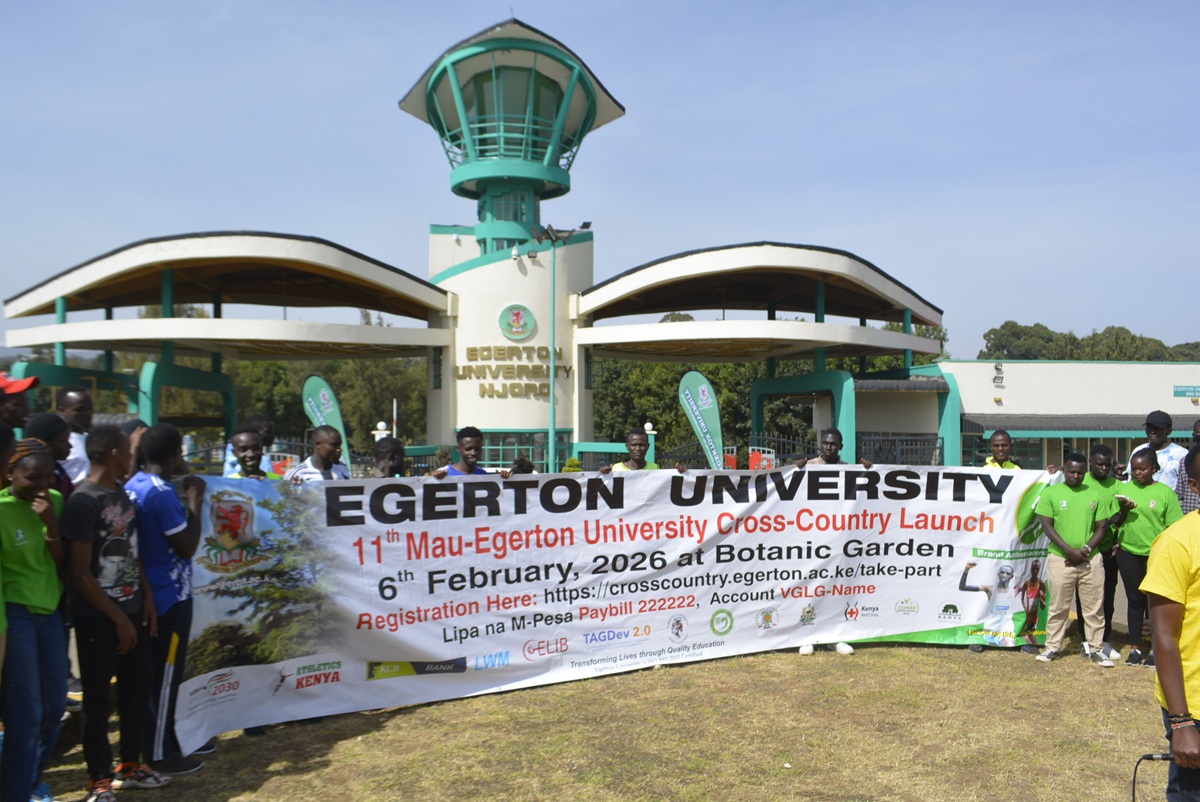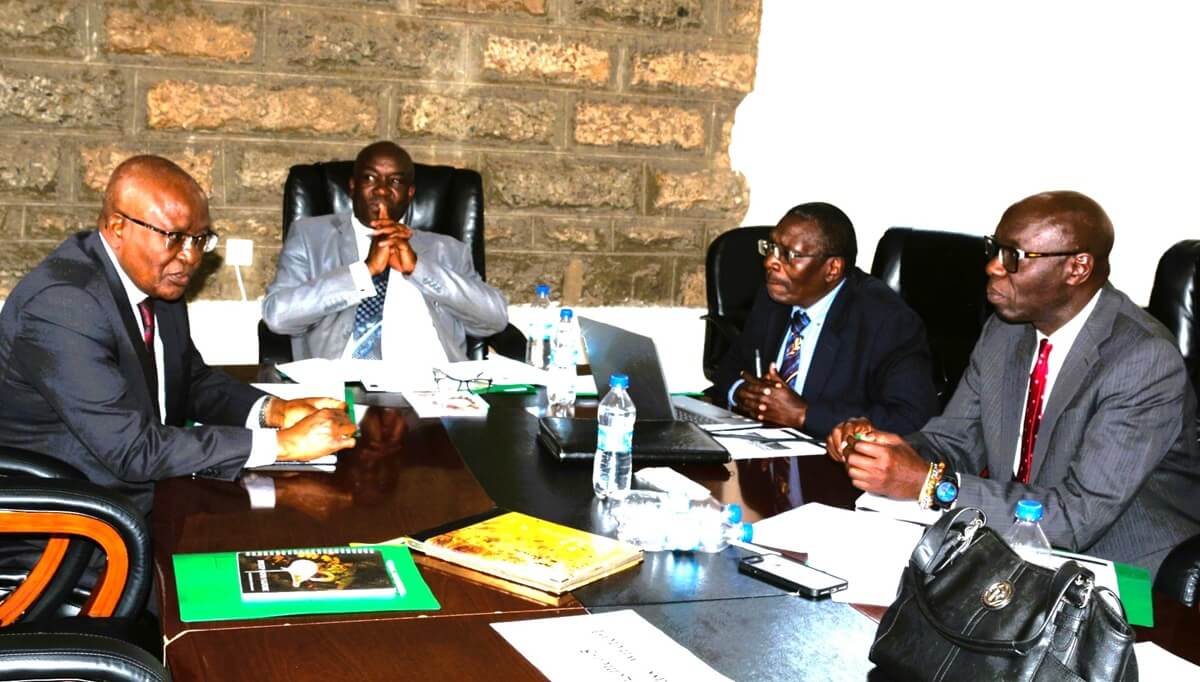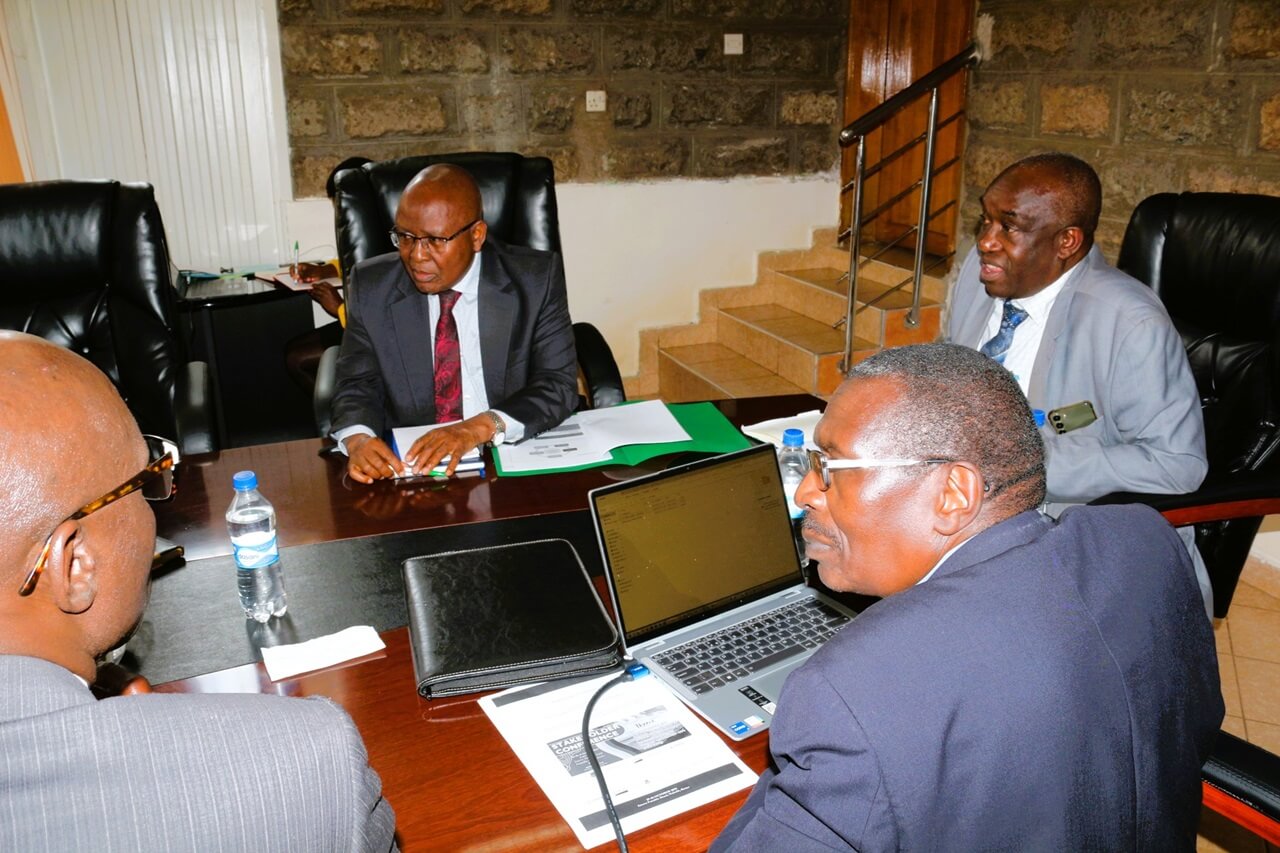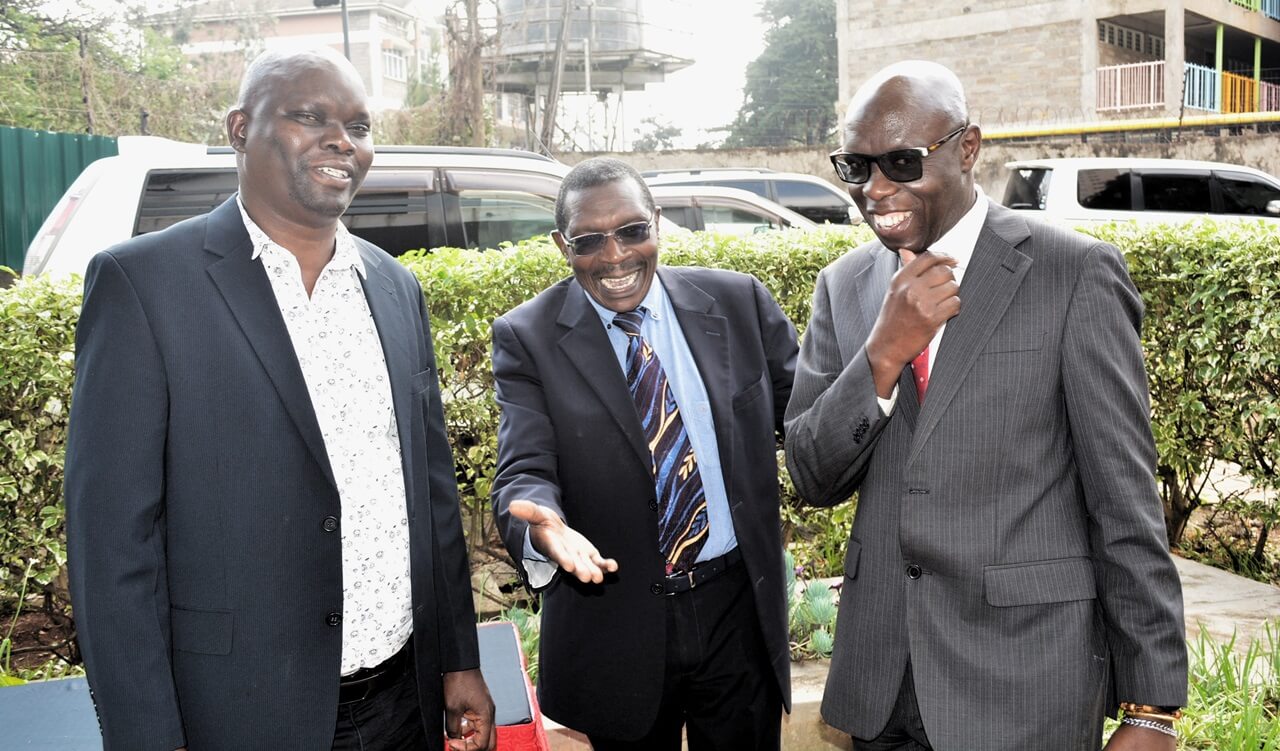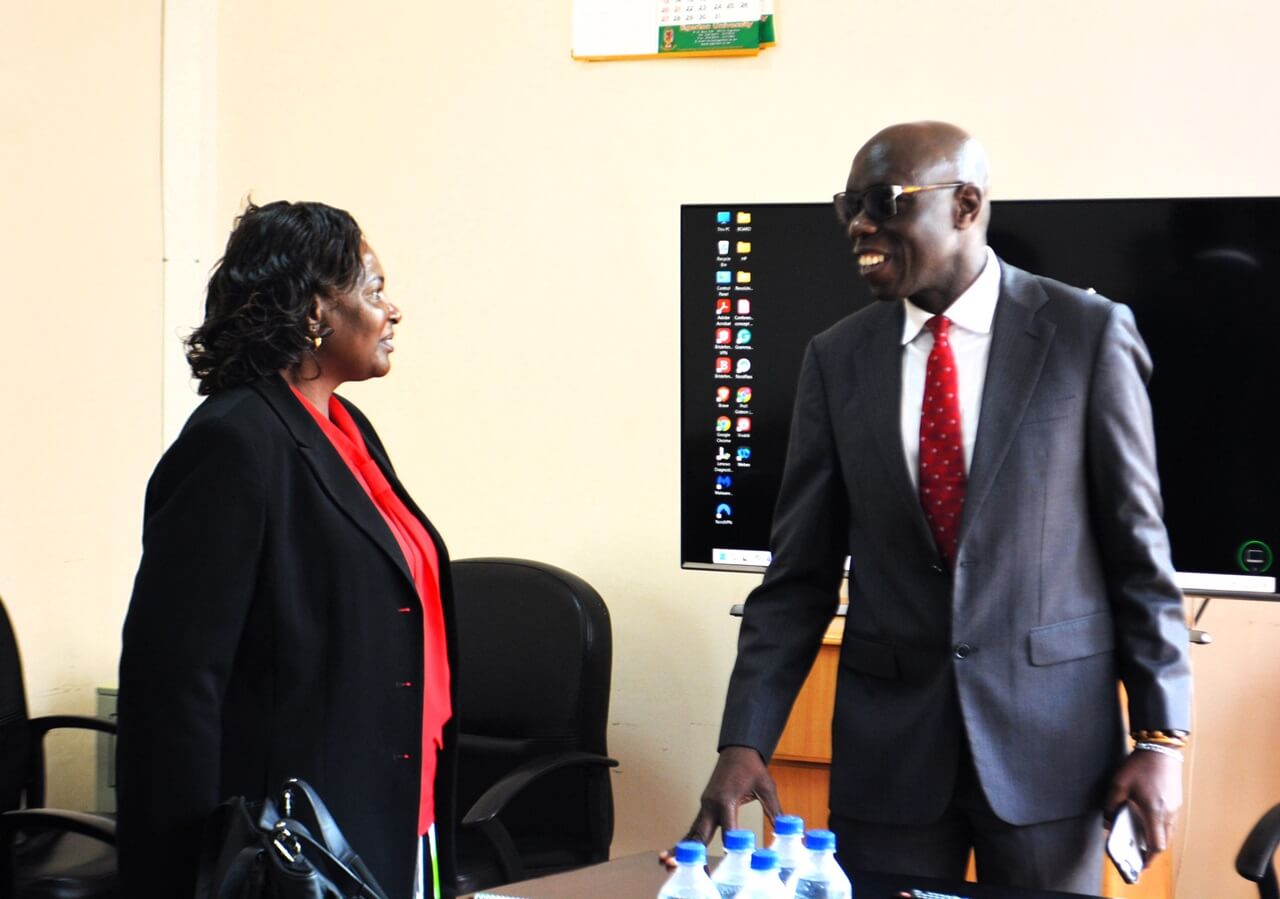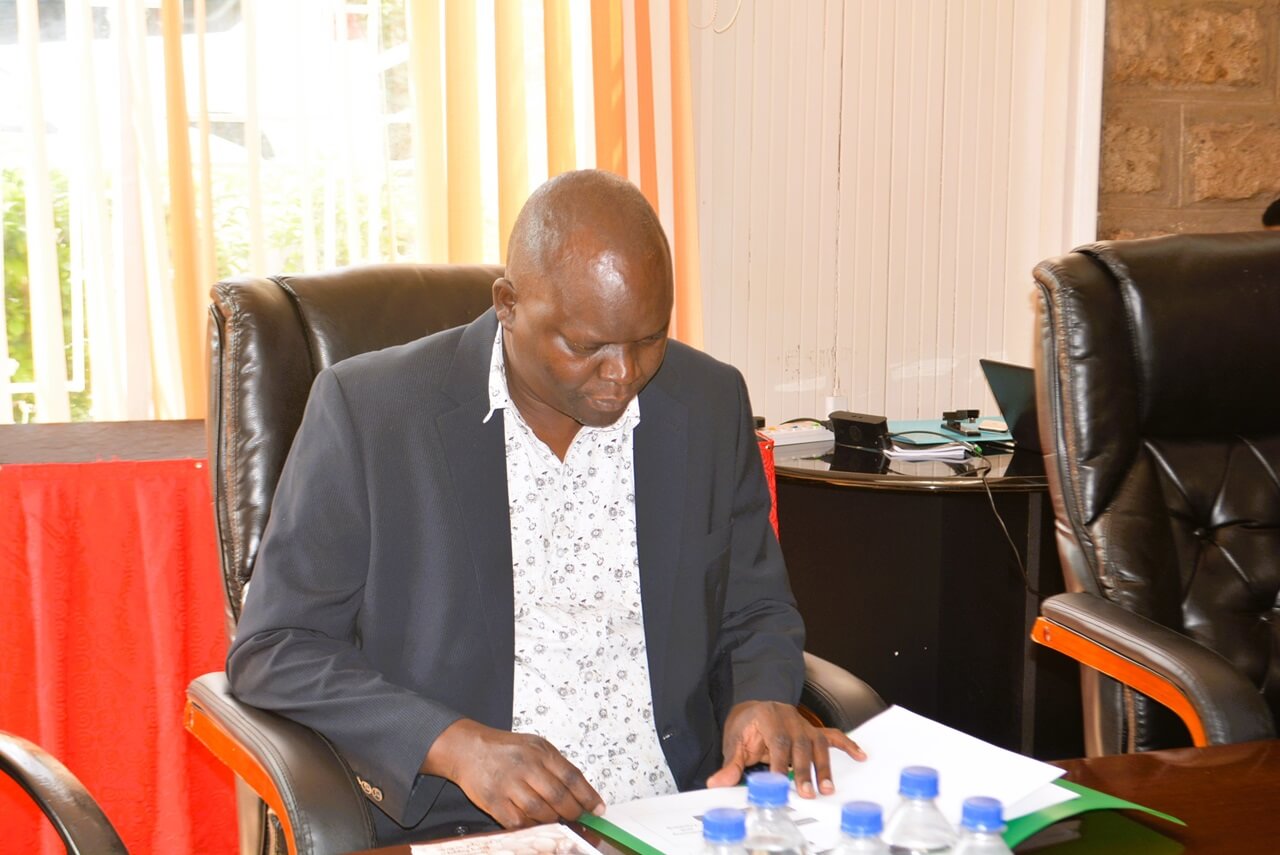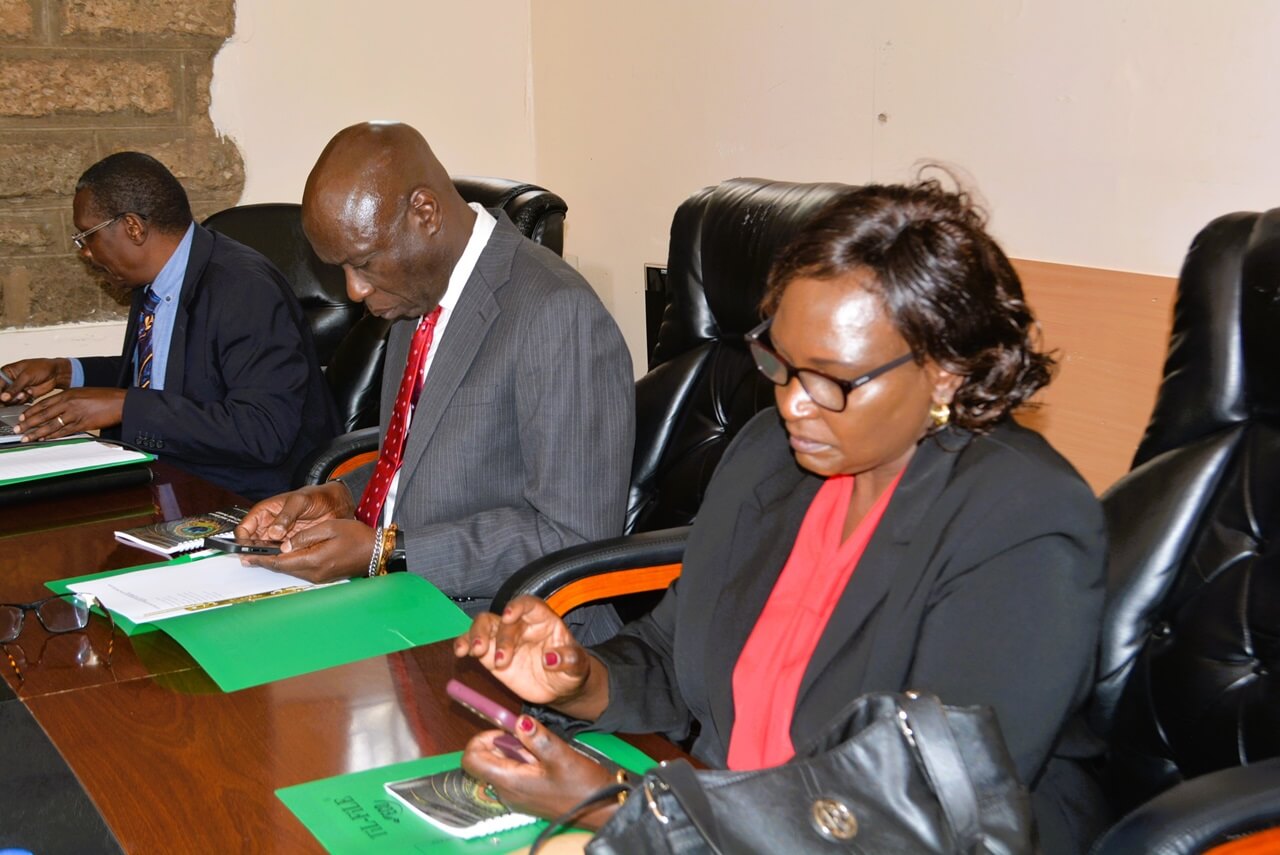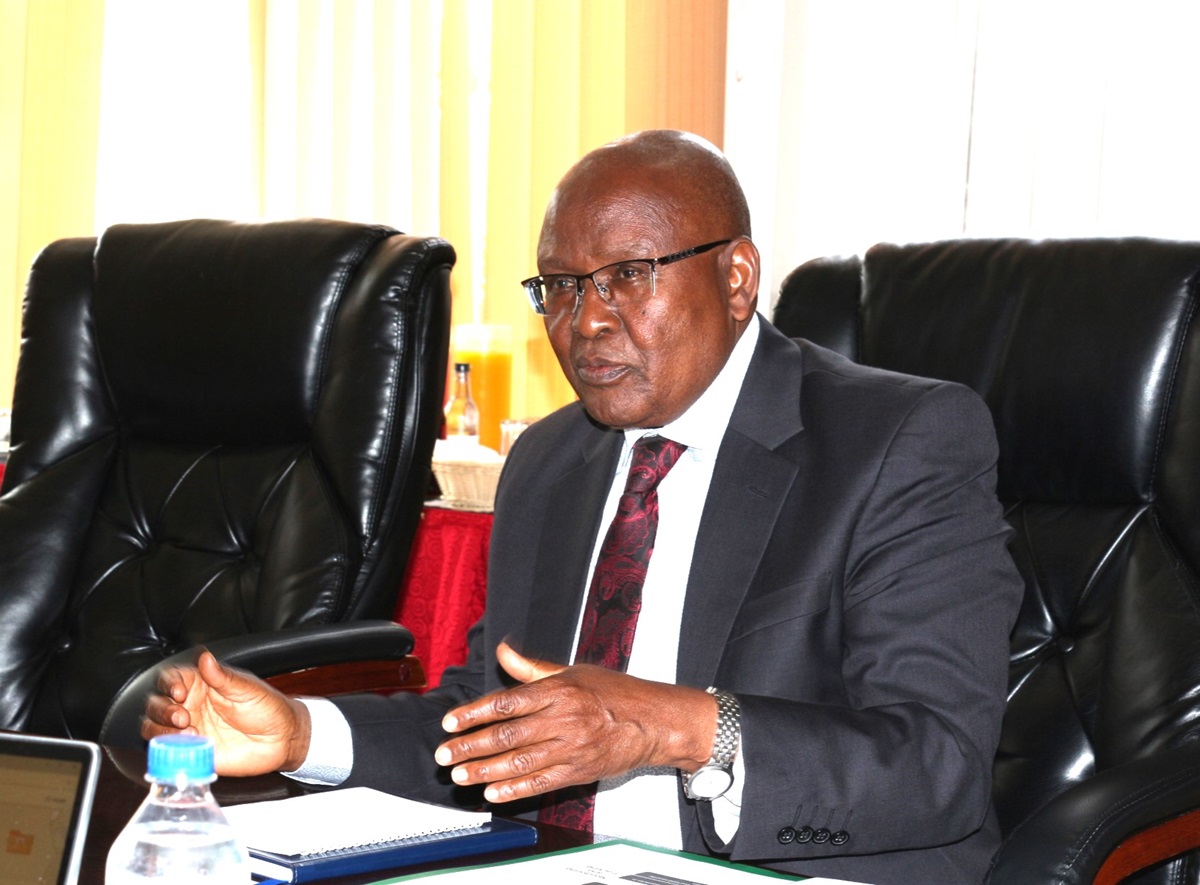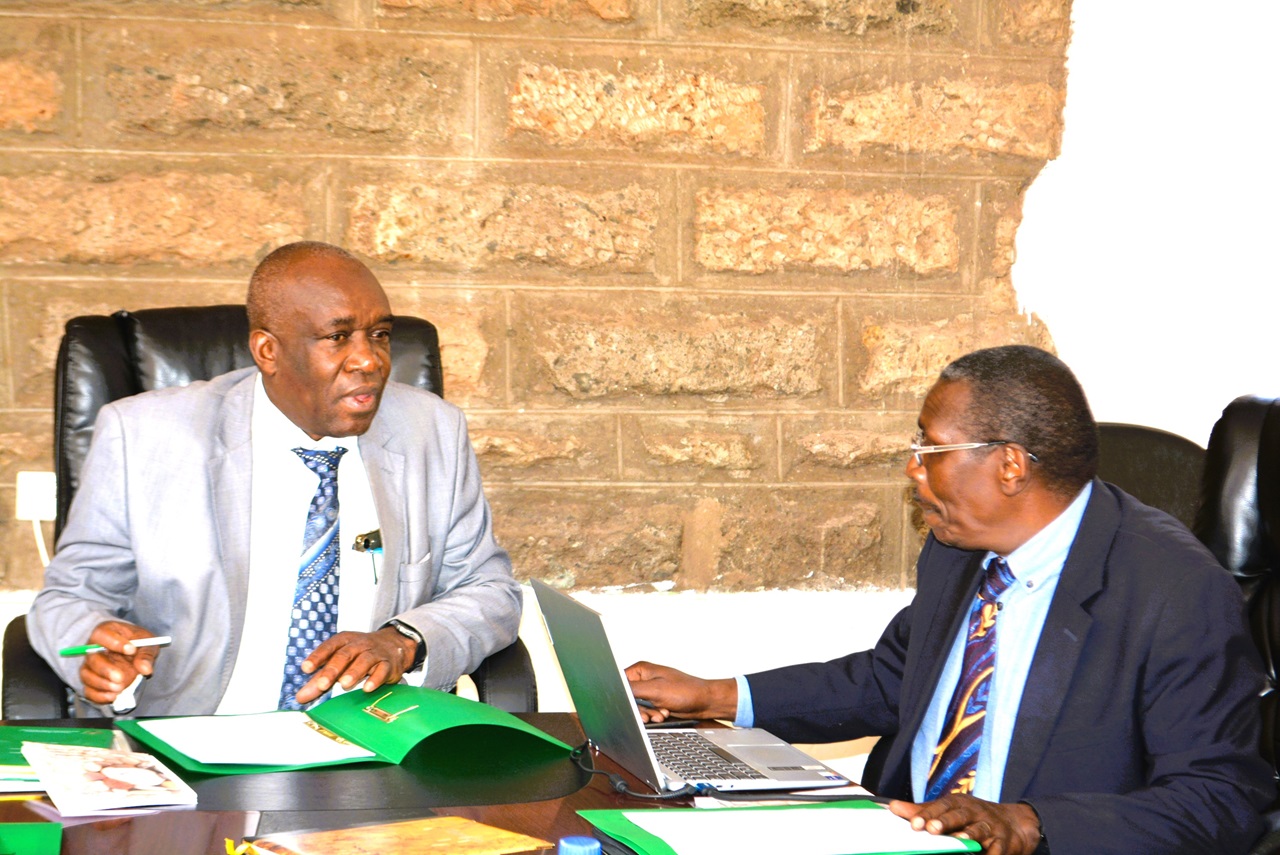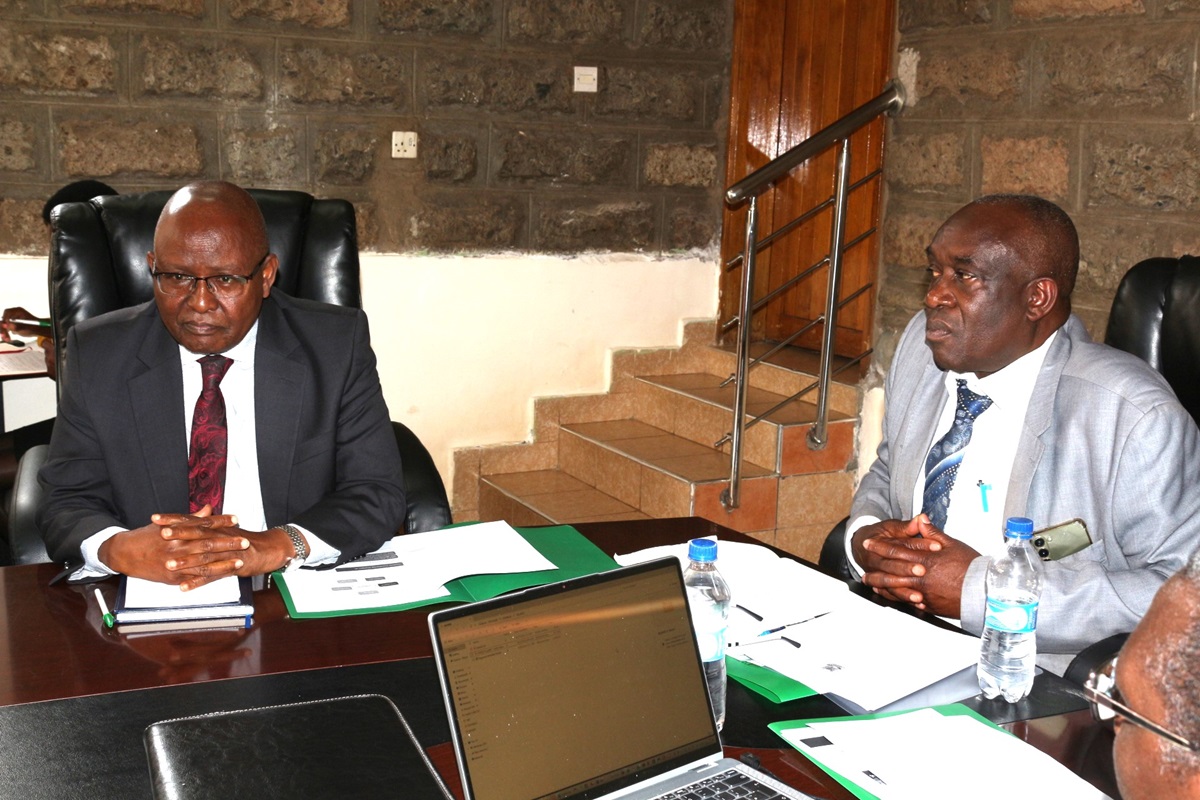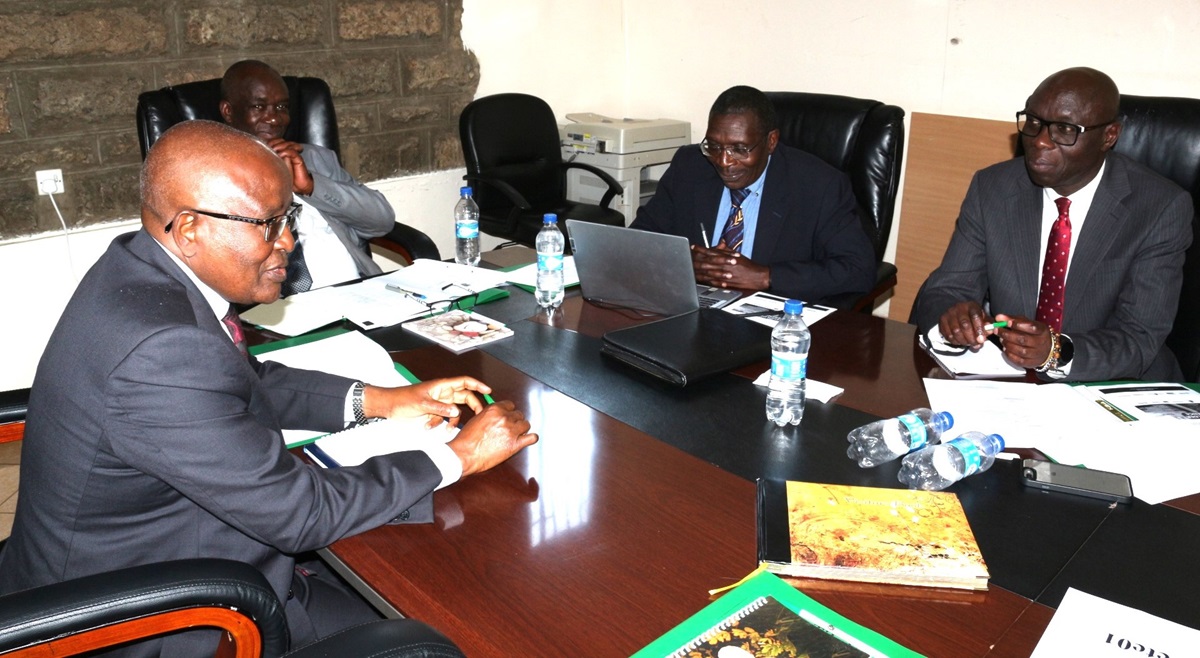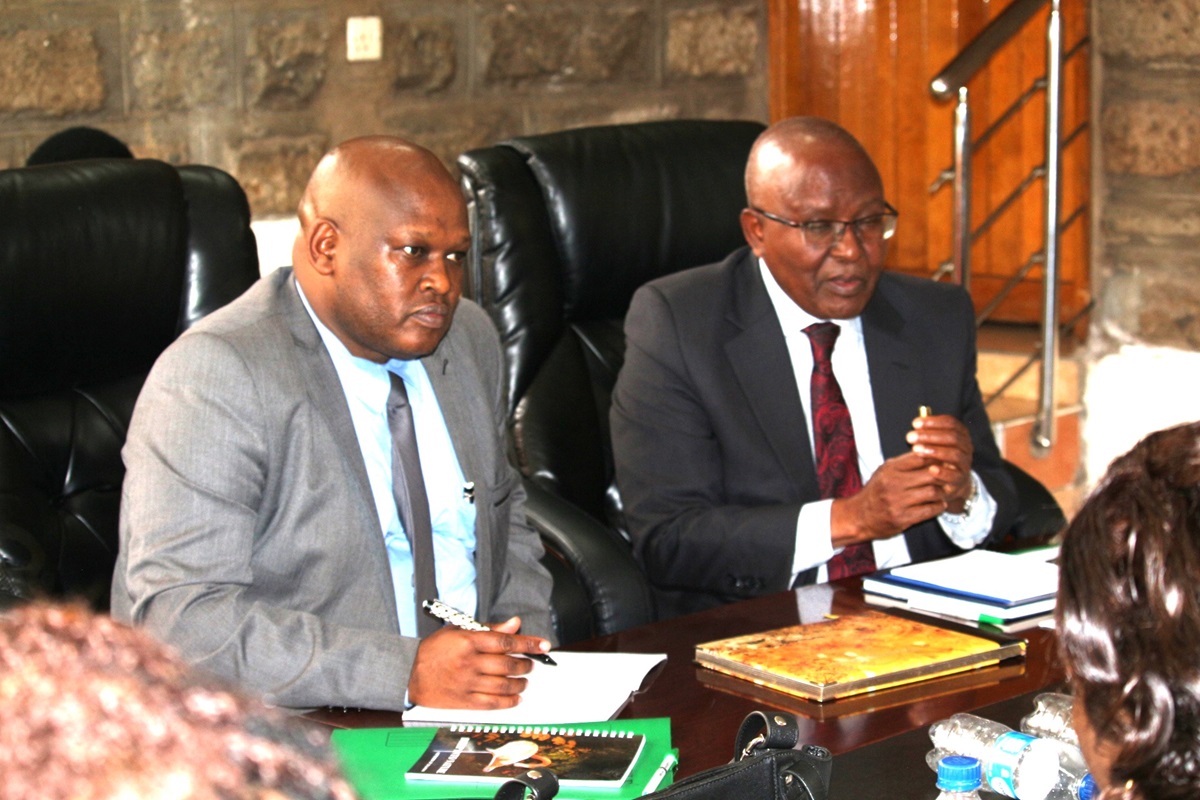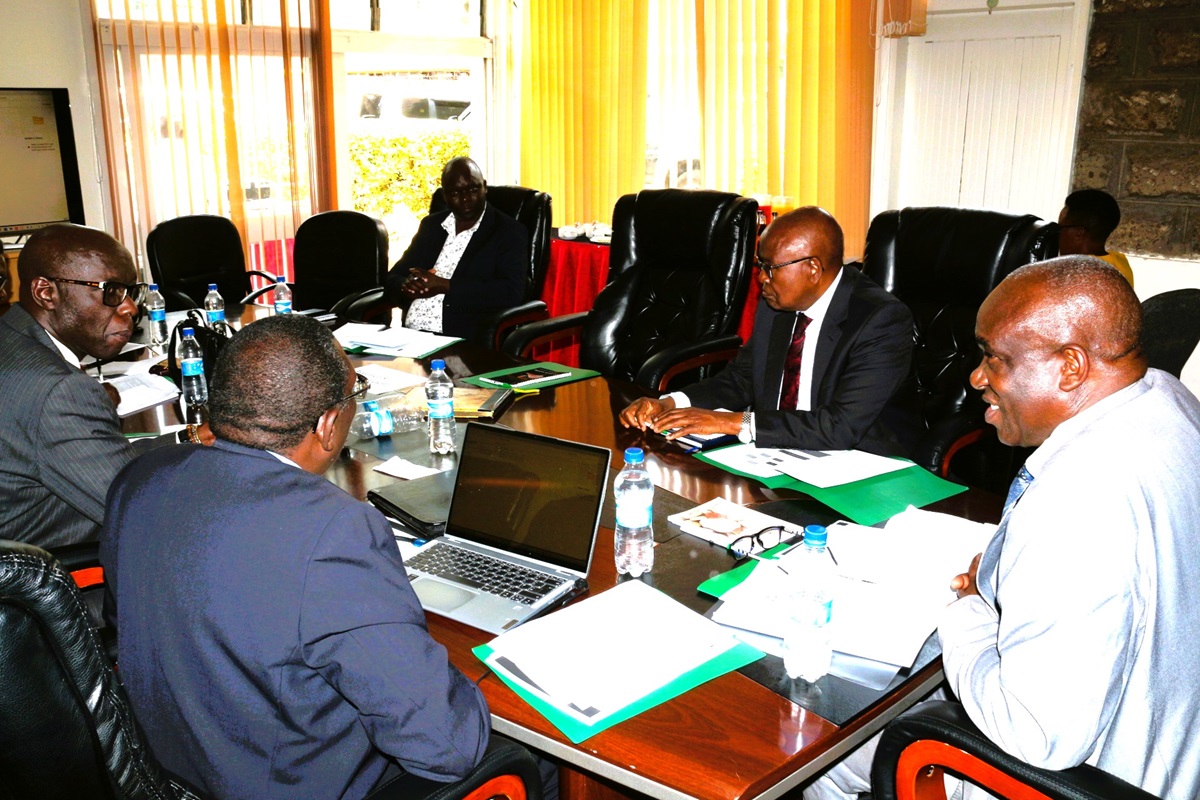Egerton University marked a major milestone today with the launch of the inaugural board for the Tegemeo Institute of Agricultural Policy and Development (TIAP). The newly appointed board held its first official meeting at the university’s Nairobi office, with Professor Bernard Aduda, Deputy Vice Chancellor for Academics, Research, and Extension, presiding over the session.
The establishment of this board represents a crucial step in enhancing the role of the Tegemeo Institute, which has been instrumental in shaping public policy and legislation related to agriculture in Kenya. Through its cutting-edge research and capacity-building initiatives, the institute aims to address the country's pressing agricultural challenges, improve productivity, and ensure sustainable development in the sector. With the formation of this new board, the university hopes to solidify the institute’s leadership in policy research and broaden its influence on both national and regional levels.
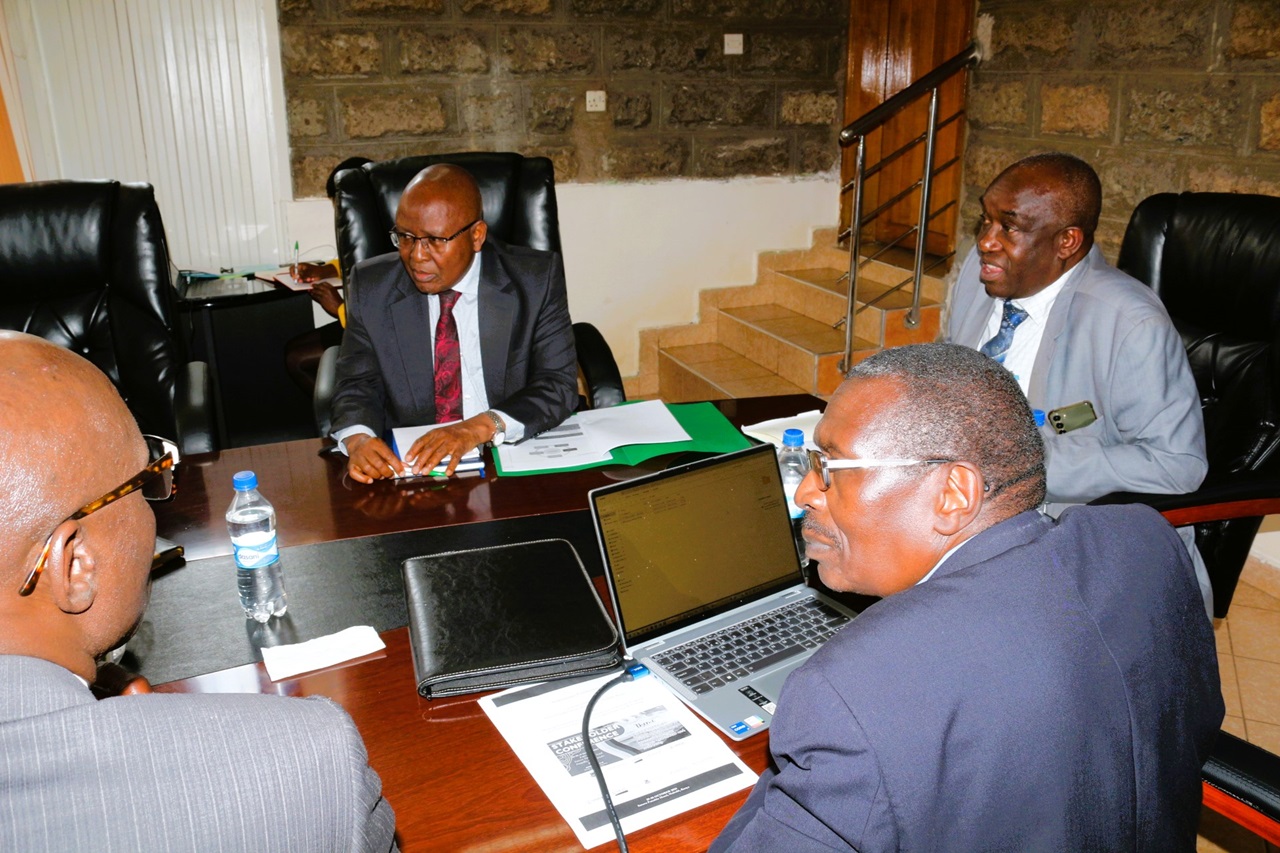
Vice Chancellor of Egerton University, Professor Isaac Kibwage, welcomed the board members and emphasized the importance of collaboration. “I am happy to see you on board and welcome you to the Egerton University family,” he said. "Together, we can ensure that the Tegemeo Institute reaches even greater heights in influencing agricultural policy and research in Kenya. This is a collective effort, and your expertise will be invaluable."
The inaugural board consists of five distinguished members from different sectors of the agricultural industry. These include Prof. Bernard Aduda, who chaired the meeting; Dr. Vincent Nyagilo from the National Economic and Social Council (NESC); Agatha Thuo from the Kenya National Farmers Federation (KENAFF); Joan Nthenya Mutile from Agricultural Network; and Prof. Hillary Bett, Chair of the Department of Agribusiness Management and Agricultural Economics at Egerton University. Prof. Gideon Obare, the Director of the Tegemeo Institute, serves as the Secretary to the Board.
Prof. Kibwage expressed confidence that the newly formed board would steer the Tegemeo Institute towards aligning its strategic goals with those of the university. He acknowledged that the institute had faced some initial challenges but noted that with the expertise of the new board, the institute could effectively implement the university’s recently approved strategic plan.
“Donor funds must be safeguarded, and resources at all levels must be used prudently. You have a heavy task ahead to support the university in achieving its strategic objectives, mission, and vision of transforming lives through quality education,” added Prof. Kibwage. He also emphasized the importance of a clear vision for the institute’s future and encouraged the board to conceptualize its mandate carefully.
During the meeting, the board discussed several key issues, including strengthening the institute’s role in agricultural policy research, addressing the impact of climate change on agriculture, and promoting sustainable agricultural practices. The members recognized the institute’s pivotal role in monitoring changes at various levels—from households and commodity markets to sector-wide and macroeconomic trends.
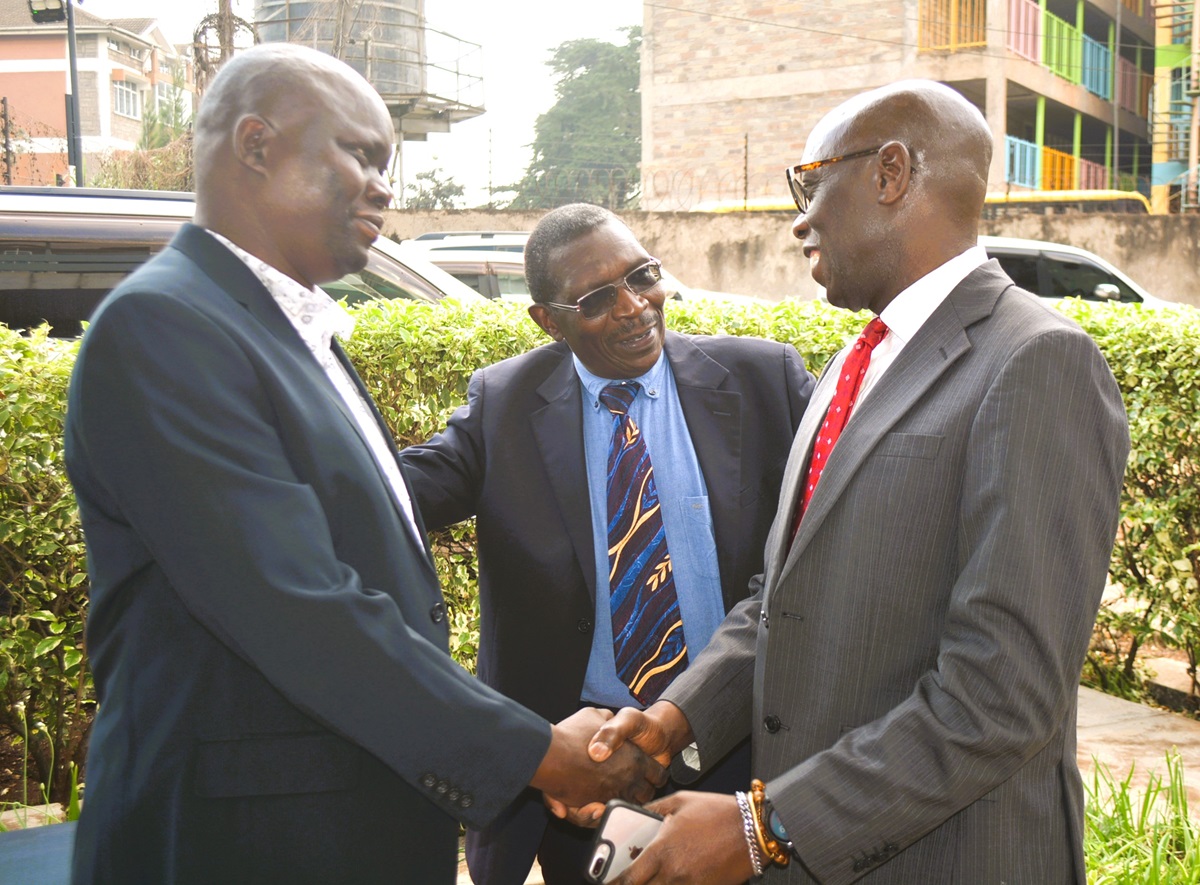
Prof. Obare, in his presentation to the board, outlined Tegemeo Institute’s core mandates, which include policy research, monitoring key agricultural indicators, and providing empirical evidence to inform policymaking. Among the areas highlighted were agricultural productivity, value chain analyses, the impacts of climate change, agricultural transformation drivers, and the use of inputs in farming. The research generated by Tegemeo Institute is critical for guiding government interventions aimed at improving food security and reducing poverty in Kenya.
The institute's outreach programs also play a crucial role in disseminating research findings to stakeholders in both the public and private sectors. By providing actionable insights, Tegemeo helps to stimulate discussions among researchers, policymakers, and industry leaders, thereby promoting investments that enhance rural incomes and food security.
In addition to its research and outreach efforts, Tegemeo Institute places a strong emphasis on capacity building. The institute offers short- and long-term training programs aimed at enhancing the skills of its researchers. These programs focus on survey design, data collection, management, and policy analysis, ensuring that Tegemeo maintains a high standard in its research outputs. The board also noted the institute's efforts to build capacity among stakeholders in the agricultural sector, with specialized training designed to improve policy research and analysis across the industry.
The board's oversight role will extend to ensuring the proper use of funds from the university and donor agencies. Prof. Obare highlighted the institute’s engagement in consultancy services as another area of focus, which generates additional income while advancing its research agenda.
The formation of the inaugural board signals a new chapter for the Tegemeo Institute, which is set to strengthen its position as a leading research institution in Kenya's agricultural sector. By aligning its goals with the university’s broader mission, the institute is poised to make even greater strides in addressing the challenges faced by the agricultural sector and contributing to Kenya's sustainable development.
By Kurian Musa
Communications Officer,
Directorate of Marketing and Resource Mobilization,
Egerton University
P.O Box 536-Njoro
Mobile: +254723537167
Office Tel: +254202006065





